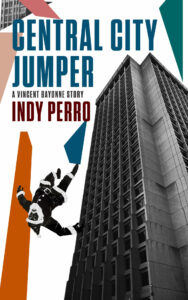Part One
A Touch of Context
A friend of mine once told me that if you could build something, you could design it. My friend happens to be quite handy. His garage is filled with tools, and he’s always restoring a classic car. For years, he’s been remodeling his house one room at a time with no end in sight. He can fix most objects commonly found in a home, and he’s a licensed electrician. He’s also a man unafraid to make bold statements.
When he made his claim, I felt we were on the path to understanding the limitations of knowledge.
If you can build something, can you design it?
Foundation for Argumentation
As a society, we lean on science because of its ability to determine outcomes. That, at least, is my understanding of our society’s scientistic approach. When we go to the doctor, we expect a diagnosis and treatment plan. Farmers expect to be able to predict, within reason, a crop yield. We expect our buildings and bridges to remain standing no matter how much we eat or how hard the wind blows. We expect to know tomorrow’s weather, within an acceptable margin of error.
We expect to live in a predictable world and to be able to influence outcomes in that world.
If we do the right things, shouldn’t we realize the right outcome? Isn’t that the definition of fair?
An idea of knowledge that exists within the specific parameters of identifiable disciplines allows us concepts such as fairness and merit, ideas on which we found our systems of education, commerce, jurisprudence, and health.
Knowledge, to be knowledge, must be objective. Knowledge can’t be opinion, belief, or perspective. We can test knowledge and reproduce the claims, thereby verifying what we know to be true.
What, then, is the difference between knowledge and understanding?
Understanding is a relationship, always dynamic, always developing, and always in a state of flux.
Knowledge is static, identifiable, often nominative and linear and never more complex than an equation can reproduce.
Understanding exists outside of the patterns that give knowledge meaning.
To know something is to identify and reproduce the identification. To understand something is to enter into a relationship with that thing, a relationship that changes the one who understands.
Knowledge serves; understanding shapes.
Neither knowledge nor understanding is more profound, which is, perhaps, the point.
I don’t need to understand electricity or illumination to know that electricity will illuminate the room when I flick this light switch.
A farmer doesn’t need to understand the chemical composition of fertilizer or pesticide to know that it will help him maximize crop production.
A patient doesn’t need to understand microbiology to take an antibiotic, and to be honest, a doctor doesn’t need to understand microbiology to prescribe the correct antibiotic.
Understanding only matters outside expectations. When we step beyond environments we can control, when we admit the world is larger than our perception of the world, then we begin to realize the importance of understanding.
When feeling good in a grocery store filled to overflowing, we don’t question the meaning of our lives.
We question how we generate meaning when we’re faced with a disease we cannot cure, farm runoff polluting our lakes and streams, food shortages, electrical outages, or electrocution.
When the unexpected strikes, we ask why we can’t do anything about it and why we didn’t see it coming. We question our understanding.
Responding to the unexpected requires understanding because we’re forced to chart an unknown course. We find ourselves beyond what we can identify, and we must feel for the truth that defines a true north.
Does knowledge define or deny truth?
Continued in Part Two.
After Thoughts
Again, I’m left with more questions than answers. Here are a few of those questions in the hopes that you can help me think through these issues.
How do you understand the difference between understanding and knowledge?
If you can build something, can you design it?
When you’ve had to respond to the unexpected, how have you questioned what you thought you knew?
Please share your thoughts in the comments section below. I look forward to hearing from you.


